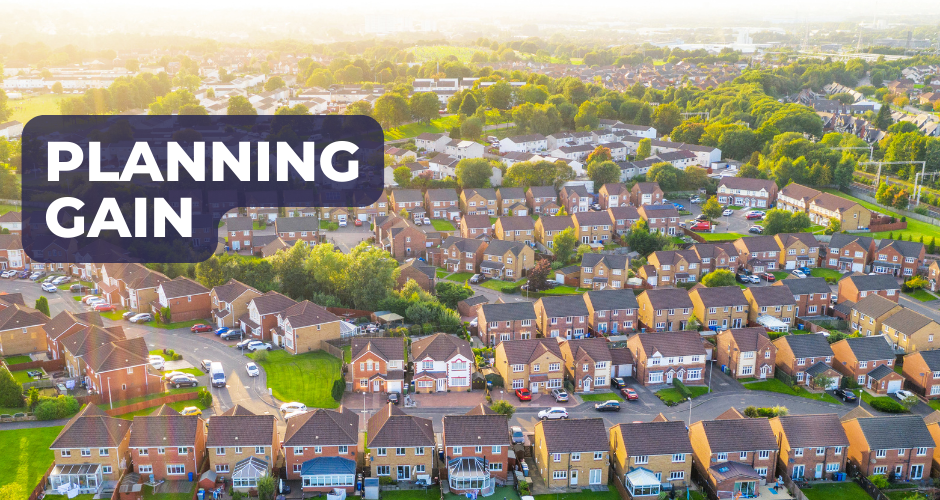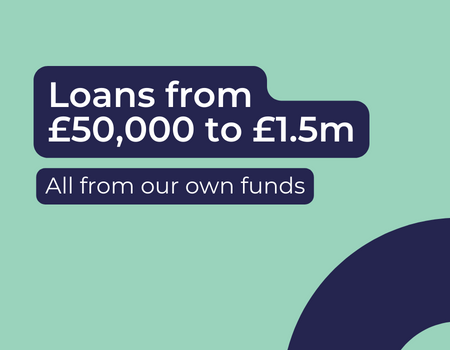Planning Gain: How To Make Money Without Building Property Yourself

Breeze Capital understand the importance of planning gain. Planning gain is a mechanism through which local authorities can require developers to provide benefits to the local community in exchange for permission to build on a particular site and the financial benefits to the developer are potentially huge.
These benefits, known as planning gain, can take many different forms, such as the provision of affordable housing, the creation of community facilities, or the improvement of public spaces. The aim of planning gain is to ensure that the development of a particular site not only benefits the developer but also benefits the wider community in which the development is taking place.
To illustrate how planning gain works, let’s take the example of a property developer who wants to build a new housing development on a piece of land in a local authority area. In order to gain permission to build on the site, the developer will need to enter into negotiations with the local authority to agree on a package of planning gain.
The local authority might require the developer to provide a certain percentage of affordable housing within the development, to contribute towards the cost of new community facilities such as a school or a park, or to make improvements to the local transport infrastructure. Some of these ‘extras’ are officially described as Section 106 agreements or Community Infrastructure Levy’s (CIL).
Once an agreement has been reached, the developer will be granted planning permission, and work can begin on the site. The developer will be responsible for delivering the agreed package of planning gain, which may involve working with other contractors or service providers to deliver the required community benefits.
In some cases, planning gain can be a controversial issue, with some arguing that it places an unfair burden on developers and can make projects economically unviable. However, proponents of planning gain argue that it ensures that the benefits of development are shared more widely across the community, and that it helps to create more sustainable and vibrant local areas.
As a short-term lender in the UK, it’s important to be aware of planning gain requirements when assessing the viability of a particular property development project. Understanding the potential costs and benefits of planning gain can help to inform lending decisions and ensure that projects are sustainable in the long term.
Why would a developer sell the land without simply developing it themselves
There can be several reasons why a property developer may choose to sell land with planning permission rather than developing it themselves. Here are some possible reasons:
Lack of resources or expertise
The developer may not have the necessary financial resources, technical expertise, or personnel to carry out the development project, and may therefore choose to sell the land to someone who does.
Shifting market conditions
The property market can be volatile, and developers may change their plans in response to changing market conditions. For example, if demand for a particular type of development (such as residential housing) declines, the developer may decide to sell the land rather than invest in a project that is unlikely to be profitable.
Better investment opportunities
The developer may have other investment opportunities that offer higher returns or lower risks than developing the land. Selling the land with planning permission can provide a quick return on investment and free up capital for other projects.
Planning conditions
Although planning permission has been granted, there may be conditions attached to the permission that the developer finds unattractive or difficult to meet. For example, the developer may be required to provide a certain amount of affordable housing or contribute to local infrastructure improvements. Selling the land may be a more attractive option than dealing with these conditions.
Planning permission as an asset
Obtaining planning permission can be a valuable asset in itself, especially if the permission is for a type of development that is in high demand. Selling the land with planning permission can be a way for the developer to realise the value of that asset without actually carrying out the development project.
Summary
A property developer may choose to sell land with planning permission rather than developing it themselves for various reasons, including lack of resources or expertise, changing market conditions, better investment opportunities, planning conditions, or the value of planning permission as an asset.
Call us on Chester 01244 565095 for more details on how we can help you fund the purchase of land with planning permission.

